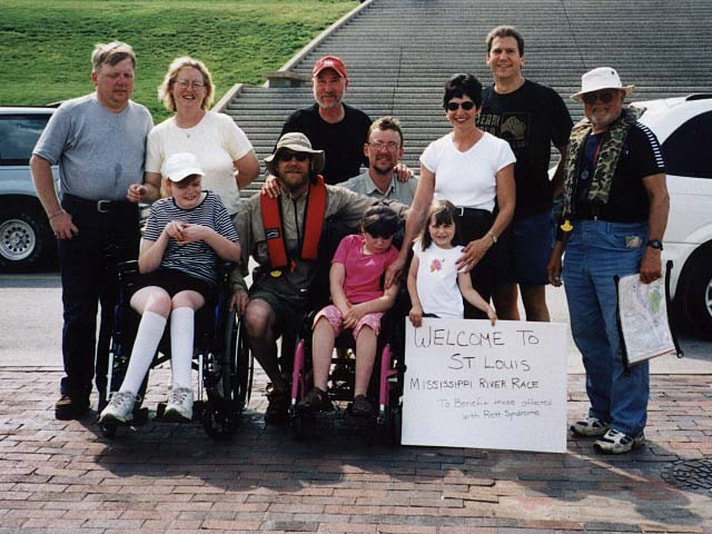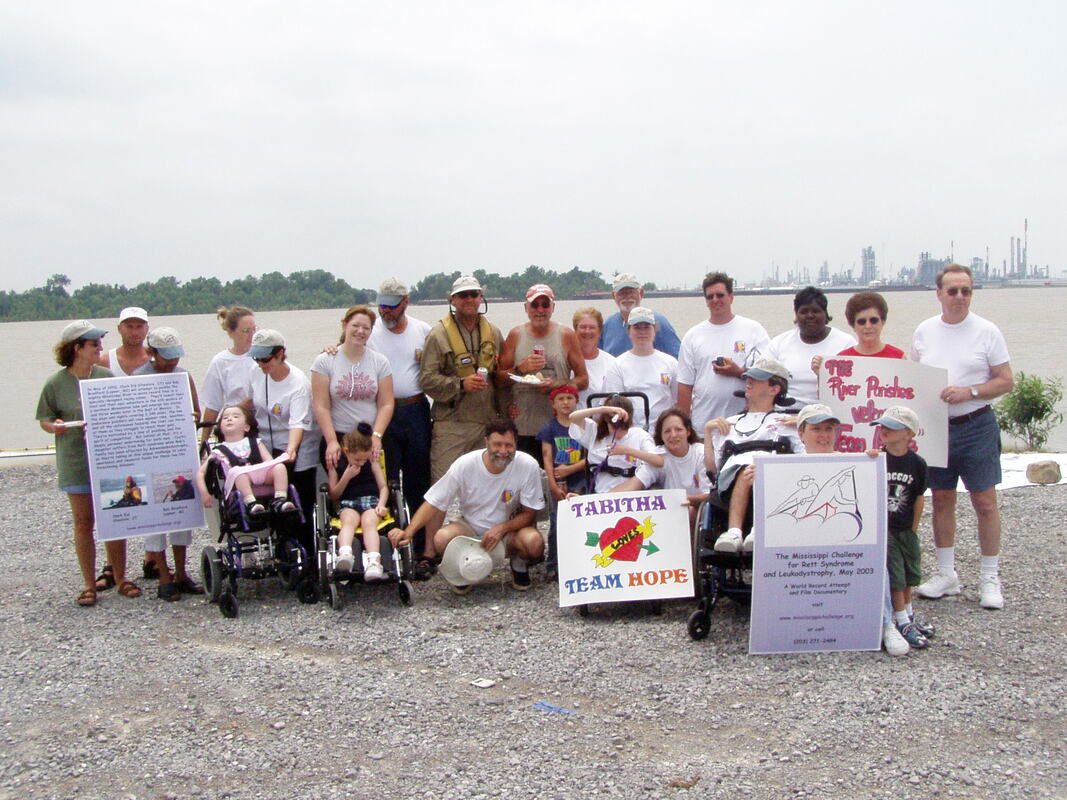Rett Syndrome
|
|
Rett syndrome is a severe neurological disorder that randomly strikes 1 in 10,000 young girls within the first two years of life. Rett Syndrome affects males also but few are known to survive to pregnancy. Statistics for male children are not known.
Rett Syndrome can affect any child in any family. Greater than 99% of those affected by Rett Syndrome have no case history of Rett Syndrome in their family. A genetic mutation (MECP2) was discovered in 1999 that accounts for approximately 85% of diagnosed Rett Syndrome cases. Your doctor can order an MECP2 test. Diagnosis of Rett Syndrome is decided by case history and symptoms. You can be diagnosed with Rett Syndrome even if you do not test positive for an MECP2 mutation. |
Most children with Rett Syndrome will "appear" to develop normally for about the first 6 to 18 months, although there may be subtle signs such as hypotonia or difficulty feeding during that time. After that, a typical Rett Syndrome child begins to slow in development.
 Rett angels and families at a CT Rett gathering, Pat Fay's house, 1999, Amanda Eid sits with Mary Potter in the center - Amanda's black shirt says "BOSS" on it...
Rett angels and families at a CT Rett gathering, Pat Fay's house, 1999, Amanda Eid sits with Mary Potter in the center - Amanda's black shirt says "BOSS" on it...
This is soon followed by the loss of purposeful hand use which is often replaced by hand wringing or clapping. Autistic like behavior, aggression, screaming, and self injurious behavior may appear. As the child continues to age you may see significant breathing dysfunctions, seizures, seizure like behavior and tremors,
gastro intestinal problems, scoliosis and kyphosis, severe muscle spasticity, weakness, and loss of muscle mass, severe teeth grinding, decreased growth, and poor sleep and sleeping problems.
Treatment and Outcome
There is no cure. Therapies to improve the quality of life remain elusive. The outcome of this disorder continues to be a life time of constant care marked by decreasing motor and muscle ability and symptoms listed above. Specialized equipment, surgeries and full time care from a parent or sibling often become a standard part of life for these children and adults for their entire life.
gastro intestinal problems, scoliosis and kyphosis, severe muscle spasticity, weakness, and loss of muscle mass, severe teeth grinding, decreased growth, and poor sleep and sleeping problems.
Treatment and Outcome
There is no cure. Therapies to improve the quality of life remain elusive. The outcome of this disorder continues to be a life time of constant care marked by decreasing motor and muscle ability and symptoms listed above. Specialized equipment, surgeries and full time care from a parent or sibling often become a standard part of life for these children and adults for their entire life.
|
|
Clinical Trials for Rett Syndrome
Clinicaltrials.gov For more information about Rett Sydnrome: Rettsyndrome.org Rett Syndrome Research Trust Blog RettEd - monthly interactive webcasts from the expert Pubmed - Rett Syndrome Related Info: CDLK5 FOXG1 BPAN mutation testing |

